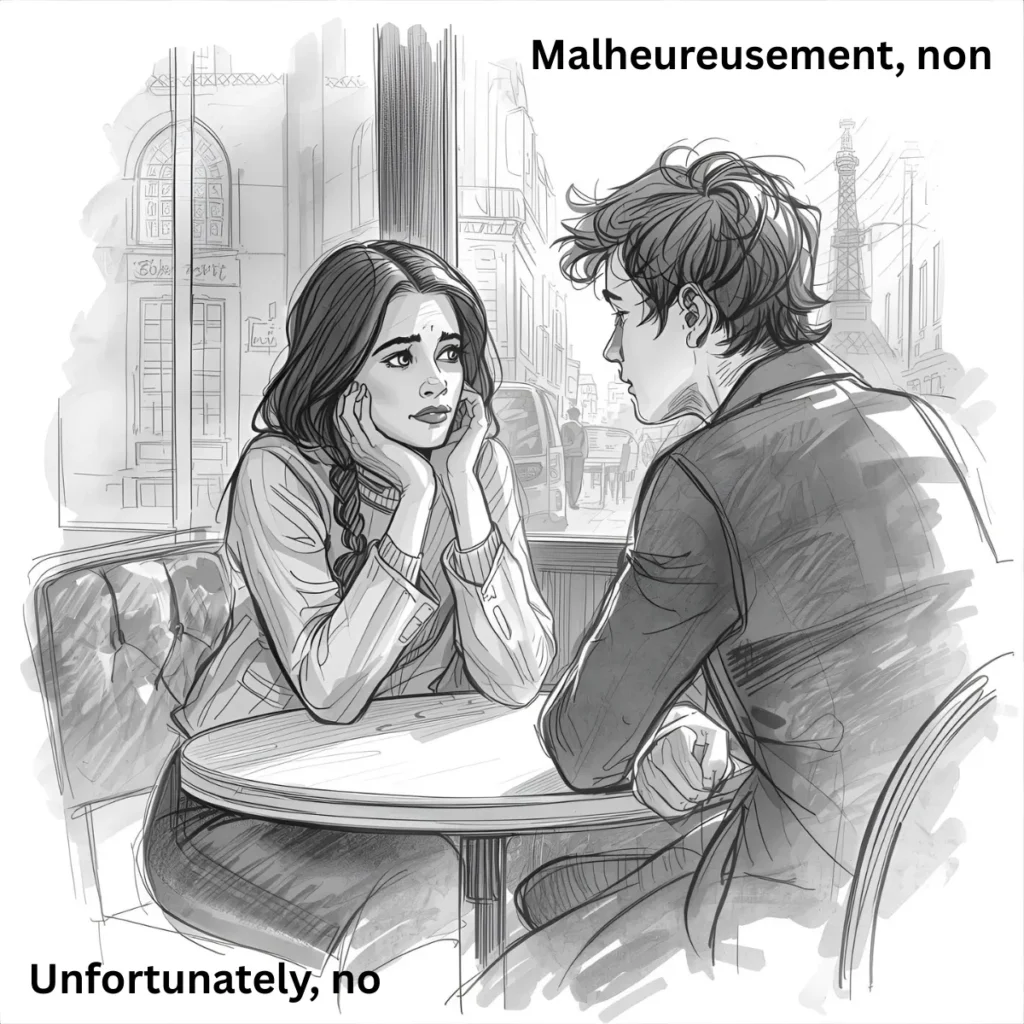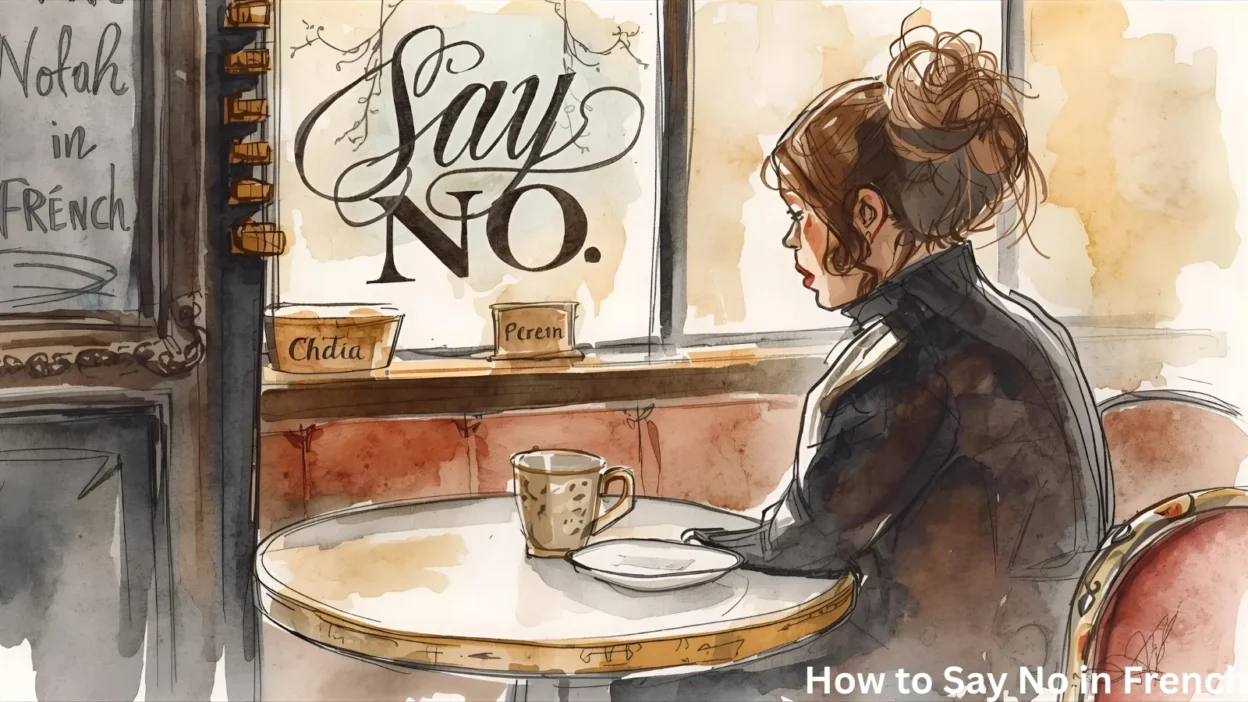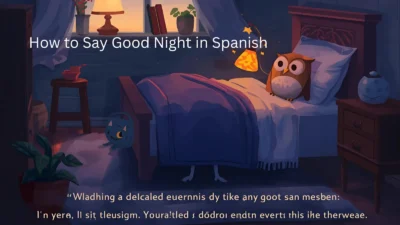If you want to learn how to say no in French, the word you’re looking for is “non.” It’s simple, short, and used in everyday conversations just like we use “no” in English. Whether you’re traveling, learning French, or just curious, knowing how to say “no” the right way can help you sound more natural and confident.
In French, tone and context matter, so there are also polite, strong, and casual ways to say it.
Learning these different forms can help you express yourself clearly in any situation.
So let’s explore the most common and natural ways to say no in French.
Say No in French
Mastering these variations will help you communicate clearly and confidently in everyday conversations.
Here are 15 different ways to say no in French, with practical examples and cultural notes to help you master them all.
✅ 15 Ways to Say No in French
| No. | French Phrase | English Meaning |
|---|---|---|
| 1 | Non | No |
| 2 | Pas du tout | Not at all |
| 3 | Absolument pas | Absolutely not |
| 4 | Certainement pas | Certainly not |
| 5 | Jamais | Never |
| 6 | Pas maintenant | Not now |
| 7 | Pas vraiment | Not really |
| 8 | Je ne crois pas | I don’t think so |
| 9 | Pas question | No way |
| 10 | Hors de question | Out of the question |
| 11 | Nullement | Not at all / By no means |
| 12 | Pas possible | Not possible |
| 13 | Non, merci | No, thank you |
| 14 | Certainement pas, merci | Definitely not, thank you |
| 15 | Je préfère pas | I’d rather not |
1. Non – No

Origin:
The direct translation of “no.” It’s simple and universal.
Example:
👤 User A: Tu veux venir au cinéma ce soir ?
👤 User B: Non, je suis fatigué.
Use: Very standard. Works in almost any situation but may sound blunt if not softened.
2. Pas du tout – Not at all
Origin:
Literally means “not at all.” It’s used to strongly but politely deny something.
Example:
👤 User A: Tu es en colère ?
👤 User B: Pas du tout ! Je suis juste concentré.
Use: Often used to reassure or clarify a misunderstanding.
3. Je ne pense pas – I don’t think so

Origin:
Softens a refusal by turning it into a personal opinion.
Example:
👤 User A: Il va pleuvoir demain ?
👤 User B: Je ne pense pas.
Use: Casual and polite. Avoids sounding too direct.
4. Ce n’est pas possible – That’s not possible
Origin:
A formal refusal often used in professional or service contexts.
Example:
👤 User A: Est-ce que je peux annuler sans frais ?
👤 User B: Désolé, ce n’est pas possible.
Use: Very common in customer service or workplace settings.
5. Je suis désolé(e), mais non – I’m sorry, but no
Origin:
Adds politeness and empathy by combining an apology with a refusal.
Example:
👤 User A: Tu peux m’aider demain ?
👤 User B: Je suis désolé, mais non. J’ai déjà un rendez-vous.
Use: Soft, respectful, and appropriate for delicate situations.
6. Malheureusement, non – Unfortunately, no

Origin:
Adds a sense of regret to your refusal, showing consideration.
Example:
👤 User A: Tu peux venir à mon anniversaire ?
👤 User B: Malheureusement, non. Je serai en voyage.
Use: Polite and empathetic; great for social contexts.
7. Je ne peux pas – I can’t
Origin:
Used to express inability rather than unwillingness—makes the no sound less harsh.
Example:
👤 User A: Tu peux me prêter 20 euros ?
👤 User B: Désolé, je ne peux pas.
Use: Very common and neutral.
8. Je préfère pas – I’d rather not
Origin:
Colloquial version of “I’d prefer not to.” Common in casual speech.
Example:
👤 User A: On va au bar ce soir ?
👤 User B: Je préfère pas, j’ai un examen demain.
Use: Informal and gentle.
9. C’est non – It’s a no
Origin:
This is a stronger and more assertive way to refuse, similar to “That’s a no.”
Example:
👤 User A: Tu veux essayer ce défi dangereux ?
👤 User B: C’est non. Complètement fou !
Use: Used when you need to be firm.
10. Hors de question ! – Out of the question!
Origin:
This is an emphatic way to express refusal, often with emotion or urgency.
Example:
👤 User A: Je peux sortir à minuit ?
👤 User B: Hors de question !
Use: Strong and final; often used by parents or teachers.
11. Jamais ! – Never!

Origin:
Strong denial, useful when something is entirely unacceptable.
Example:
👤 User A: Tu tricherais à l’examen ?
👤 User B: Jamais !
Use: Passionate or moral refusals.
12. N’importe quoi – Nonsense / Absolutely not
Origin:
Literally means “whatever,” but in this case, it’s used to reject something ridiculous or false.
Example:
👤 User A: T’as dit que Paul est amoureux de toi ?
👤 User B: N’importe quoi !
Use: Slangy; used in informal conversations, often to express disbelief.
13. Je crois pas, non – I don’t think so, no
Origin:
A softer way to disagree. Often used in spoken French to sound polite but clear.
Example:
👤 User A: On a cours demain ?
👤 User B: Je crois pas, non. C’est un jour férié.
Use: Informal, friendly, and indirect.
14. Peut-être une autre fois – Maybe another time
Origin:
Common in both French and English cultures to gently decline an offer while leaving the door open.
Example:
👤 User A: Tu veux aller au musée ce week-end ?
👤 User B: Peut-être une autre fois. Je suis trop occupé cette semaine.
Use: Great for social situations; polite and non-final.
15. Je ne suis pas intéressé(e) – I’m not interested
Origin:
Used to decline offers, sales, or invitations without sounding rude.
Example:
👤 User A: Vous voulez essayer ce nouveau produit ?
👤 User B: Non merci, je ne suis pas intéressé.
Use: Very common in sales or marketing contexts.
FAQs:
1. What is the basic word for “no” in French?
The basic word is “non.” It’s pronounced like noh.
2. How do you say “no thank you” in French?
You say “Non, merci.” It’s polite and commonly used.
3. How do I say a strong or firm “no” in French?
You can say “Absolument pas!” which means Absolutely not!
4. How do you say “No, I don’t want that” in French?
You say “Non, je ne veux pas ça.”
5. How do you politely decline something in French?
Use “Non, merci” with a soft tone — it sounds respectful.
6. How do you say “No problem” in French?
You say “Pas de problème.”
7. How do you say “No way!” in French?
Say “Pas question !” which means No chance!
8. Can “non” be used with gestures in French?
Yes, often a simple head shake works along with “non.”
9. How is “non” used in real conversations?
Just like English — direct, casual, and easy to say.
10. Is pronunciation important when saying “non”?
Yes — keep the sound short and round like noh, not naan.
Conclusion:
Learning how to say no in French gives you the ability to express yourself politely, casually, or firmly depending on the situation. From the simple “non” to more nuanced expressions, you’ll be able to handle conversations with confidence while sounding natural.



